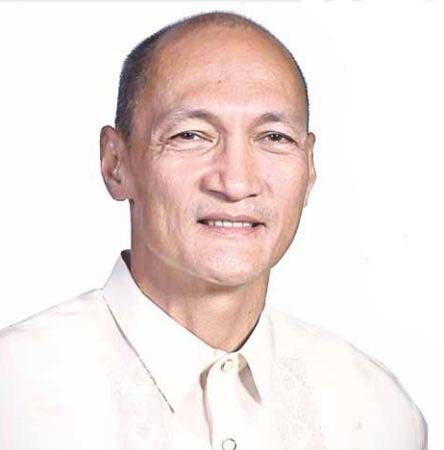
Ricardo Morales —ARMED FORCES AND POLICE GENERAL INSURANCE CORP. 2012 ANNUAL REPORT
Retired Army Brig. Gen. Ricardo Morales is poised to head Philippine Health Insurance Corp. (PhilHealth), which has been under fire for corruption and for failing to stop bogus benefit claims, Health Secretary Francisco Duque III said on Thursday.
“He is probably the best guy for the job,” Duque told the Inquirer in a text message on Thursday, confirming reports of Morales’ assignment as the new PhilHealth acting president and chief executive officer.
Last week, President Duterte sought the resignation of PhilHealth chief Roy Ferrer and six board members following the Inquirer’s three-part investigative report on “ghost dialysis” treatments, overpayments and other fraudulent practices, and a “mafia” behind padded claims.
Morales, 66, told the Inquirer he wanted to be “cautious” in issuing statements as his appointment has yet to be formalized by Malacañang.
In a phone interview on Thursday, however, the former reformist military officer said one of the first things he would do is to “clean up the image” of the state insurance company.
To fix longtime abuses
“There are a lot of people who are disappointed because some of the abuses have been going on for years. We have to fix that,” Morales said.
He assured the public that irregularities in PhilHealth would be “investigated and prosecuted relentlessly” but also that he would not be “distracted” by this cleanup drive, considering the “enormity of the task” in front of him with regard to the rollout of the universal health care (UHC) program.
“They are already doing something about it, but I’m not familiar as to what stage they are already in checking the anomalies. I would like to be very cautious about it until I fully get the whole story,” he said.
Morales said he wanted the full implementation of the UHC to be similar to the United Kingdom’s National Health Service since the landmark program was envisioned to benefit the marginalized sectors of society the most.
PhilHealth insiders said Morales had a “quick meeting” with some top officials of the state-run company on Thursday morning.
New admin’s priority
Duque said the priority of the incoming PhilHealth administration “is absolutely fraud prevention, detection and deterrence.”
Dr. Minguita Padilla, who had served as head executive staff of then Health Secretary Janette Garin, said Morales was “an officer, a gentleman and known to be a person of integrity” and that he was what PhilHealth “needs at this time of transition to UHC.”
Padilla, who helped shed light on the controversies surrounding the state insurance company, said PhilHealth needed an “internal cleansing.”
As a former health official, she said she was willing to help the incoming administration “in whatever way I can.”
Brief stint as MWSS admin
Morales, a 1977 graduate of the Philippine Military Academy (PMA), is no stranger to the insurance business. After retiring from the service in 2009, he served as president and chief executive officer of the Armed Forces and Police Mutual Benefit Association Inc. and chair of the Armed Forces and Police General Insurance Corp.
Last month, Mr. Duterte appointed Morales as Metropolitan Waterworks and Sewerage System (MWSS) administrator and vice chair, serving the unexpired term of former board member Reynaldo Velasco.
Morales told the Inquirer that he was “not formally installed” in the MWSS board and that his appointment there was set to expire on June 30.
RAM member
Hailing from Davao City, Morales was a member of the Reform the Armed Forces Movement (RAM), which triggered the military breakaway from dictator Ferdinand Marcos in 1986 that led to the Edsa Revolution.
A captain then, he was arrested by Marcos loyalist officers for attempting to withdraw firearms from the Presidential Security Unit armory on Feb. 22, 1986. At that time, Morales was the chief security escort of the dictator’s wife, Imelda.
After the Edsa uprising, Morales served in various posts, including as commander of the 404th Infantry Brigade based in Mawab, Davao del Norte province. He was relieved of that post, however, for saying the military hierarchy had skewed priorities.
Voicing the sentiments of soldiers in the field through an e-mail to a group consisting of PMA graduates, he asked why there was a need to construct the 60-room Boracay military resort when soldiers were dying of hemorrhage and sickness in the battlefield due to lack of medicines.
Morales was reinstated as a brigade commander in Bukidnon province in April 2006, after nine months on the inactive list.
Later, he was appointed as commander of Army headquarters and Headquarters Support Group at Fort Bonifacio, a post he held until he retired in 2009. —WITH A REPORT FROM INQUIRER RESEARCH